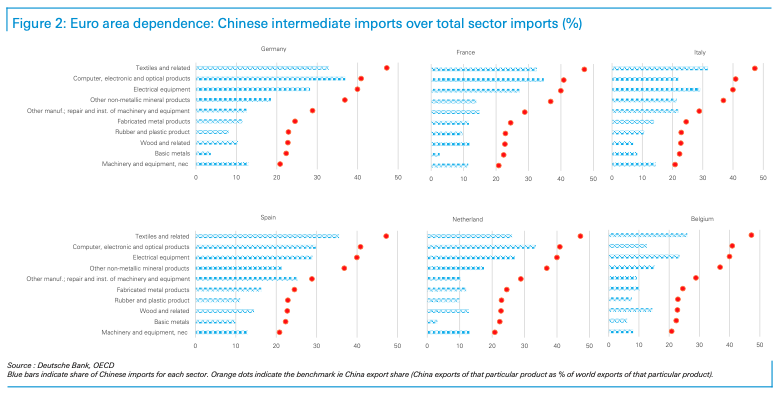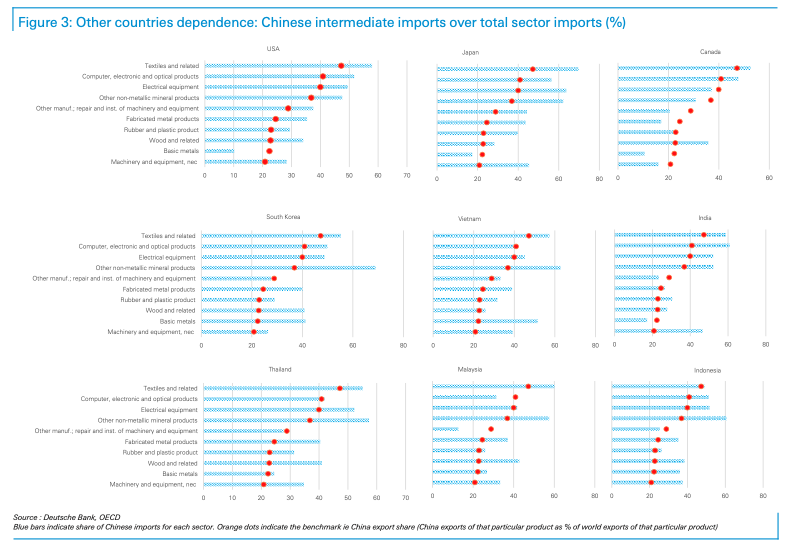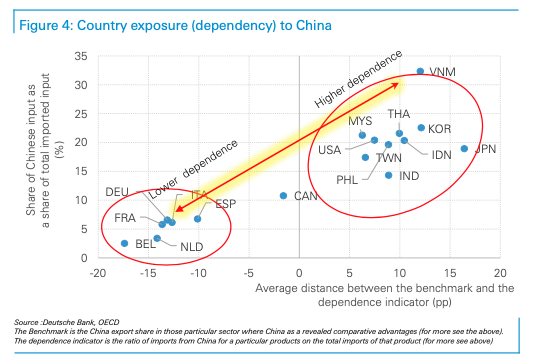In the last few weeks, we've provided many articles on the evidence of creaking global supply chains fast emerging in China and spreading outwards. Anyone in supply chain management, monitoring the flow of goods and services from China, has to be worried about which regions will be impacted the most (even if the stock market couldn't care less).
Deutsche Bank's senior European economist Clemente Delucia and economist Michael Kirker published a note on Thursday titled "The impact of the coronavirus: A supply-chain analysis" identifying the effect of contagion on the rest of the world, mainly focusing on demand and spillover effects into other countries.
The economists constructed a'dependency indicator,' to figure out just how much a country depends on China for the supply of particular imported inputs. It was noted that the more a country depends on China, the more challenging it could be for businesses to find alternative sourcing during a period of supply chain disruptions.
The biggest takeaway from the report is that, surprisingly, the European Union is less directly exposed to a China supply-chain shock than the US, Canada, Japan, and all the major Asian countries (i.e., India, South Korea, Indonesia, Malaysia, Vietnam).
It was determined that in the first wave of supply chain disruptions that "euro-area countries are somewhat less directly dependent on China for intermediate inputs than other major economies in the rest of the world."
"The euro-area countries have, in general, a dependence indicator below the benchmark. This suggests that euro-area countries have a below-average direct dependence on Chinese imports of intermediate inputs (Figure 2)."
But since China is highly integrated into the global economy, and a supply chain shock would be felt across the world. The second round of disruptions would result in lower world trade growth that would eventually filter back into the European economy.
The US, Japan, Canada, and all the major Asian countries would feel an immediate supply chain shock from China.
Here's a chart that maps out lower dependency and higher dependency countries to disruption from China.
To summarize, the European Union might escape disruptions from China supply chain shocks in the first round, but ultimately will be affected as global growth would sag. As for the US and Japan, Canada, and all the major Asian countries, well, the disruption will be almost immediate and severe with limited opportunities for companies to find alternative sourcing.
"First of all, our analysis does not take into account non-linearity in the production process. In other words, it does not capture consequences from a stop in production for particular product. It might indicate that given the dependence is smaller, Europe could find it somewhat easier substitute a Chinese product with another. But there is no guarantee this will be the case."
"Secondly, while...




